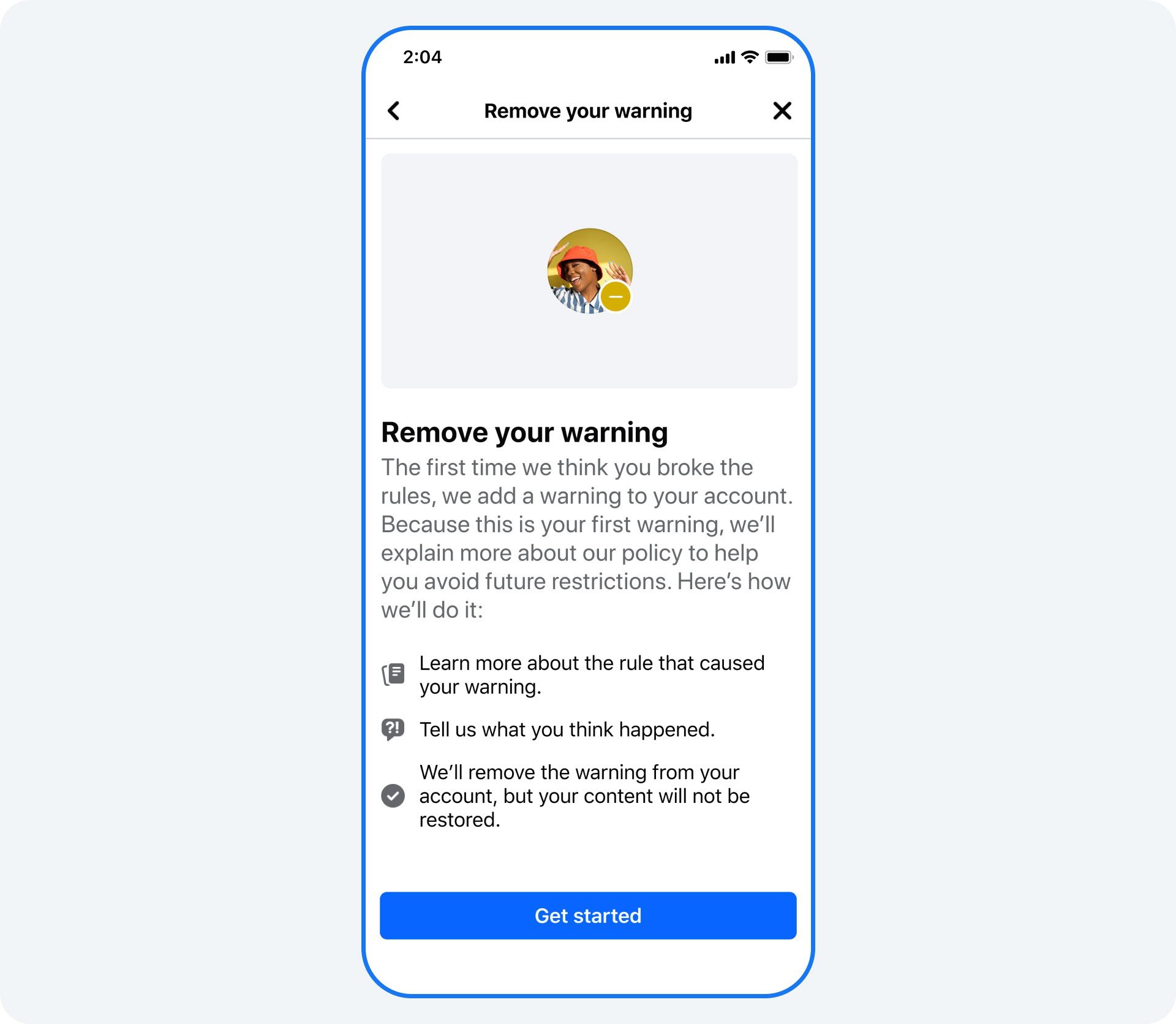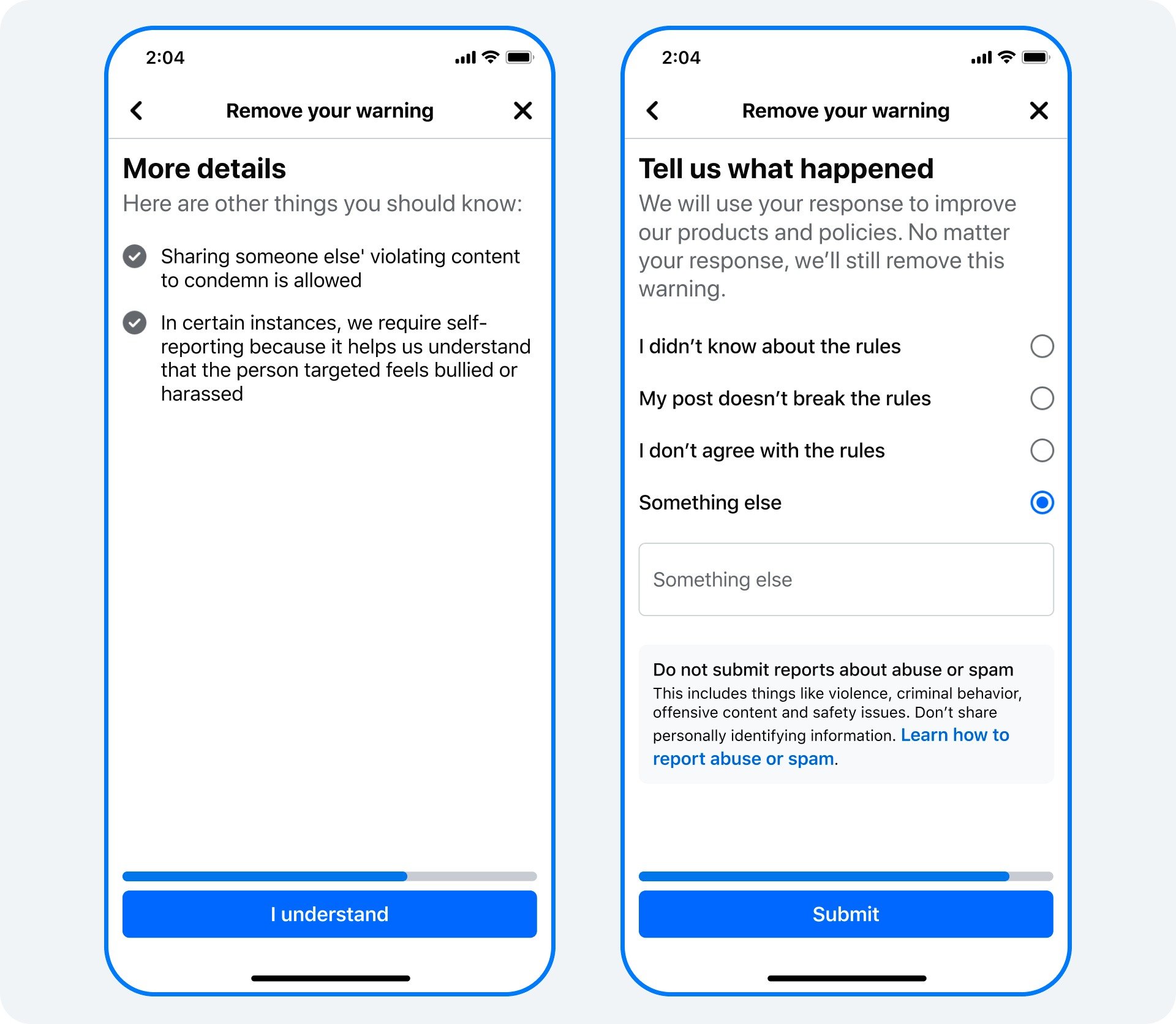Like law enforcement in some repressive virtual regimes, Meta is introducing the concept of re-education of “citizens” (users), as an alternative to eventually sending them to “jail” (imposing account restrictions).
But this only applies to “first-time offenders,” that is, those who have violated Meta’s community standards for the first time, and if that violation is not considered to be “most severe.”
The community standards now apply across Meta’s platforms – Facebook, Instagram, Messenger, Threads – while the new rule means that instead of collecting a strike for a first policy violation, users who go through “an educational program” can have it deleted.

There’s also “probation” – those who receive no strike for a year after that will again be eligible to participate in the “remove your warning” course. This applies to Facebook profiles, pages, and Instagram profiles.
Meta first introduced the option for creators last summer and is now expanding it to everyone. In announcing the change of the policy, the tech giant refers to “research” that showed most of those violating its rules for the first time “may not be aware they are doing so.”
This is where the “short educational program” comes in, as a way to reduce the risk of receiving that first strike, and Meta says the program is designed to help “better explain” its policies.

Some might say that having clear policies instead of broad and vague ones would go a long way toward better understanding them – but the company has chosen the route of punishing users and then allowing them to complete its “training course.”
Meta says that the results it has at this time, concerning creators, are “promising” since 15 percent of those who received their first strike and had it removed in this process said they “felt” they understood the rules better, as well as the way the rules are enforced.
Meta does not extend the new policy to users posting sexual exploitation content, as well as using its platforms to sell “high risk” drugs – or glorify whatever the giant decides is a “dangerous organization or individual.”
But, Meta is not, as it were, innovating censorship here; YouTube already has a similar option.








